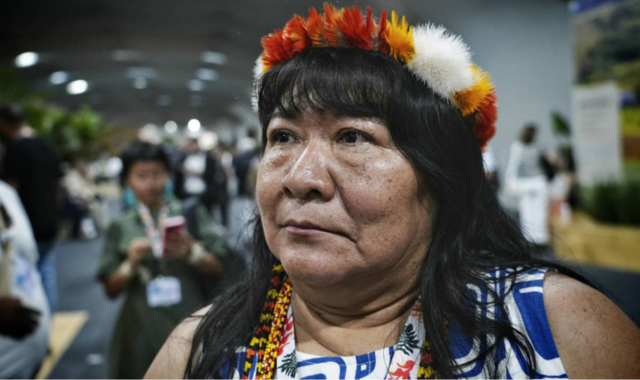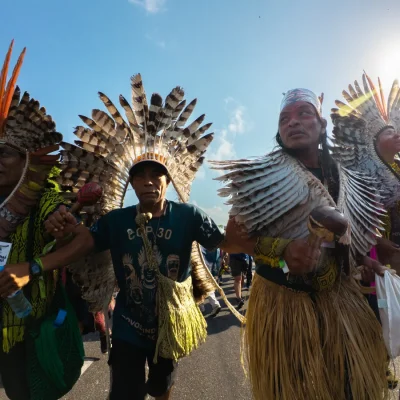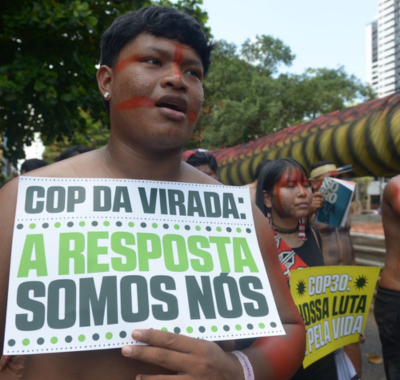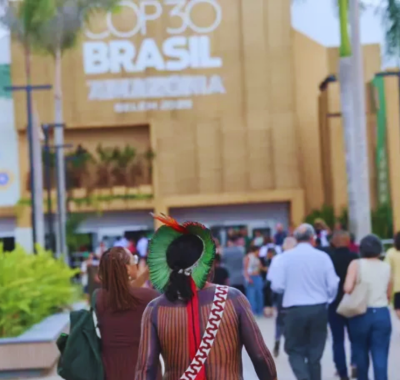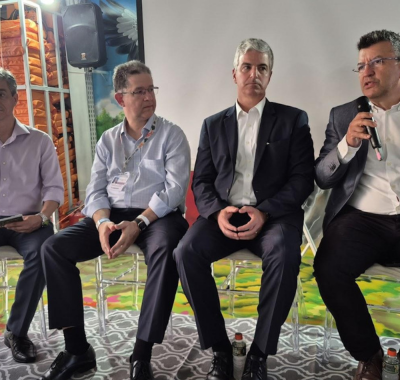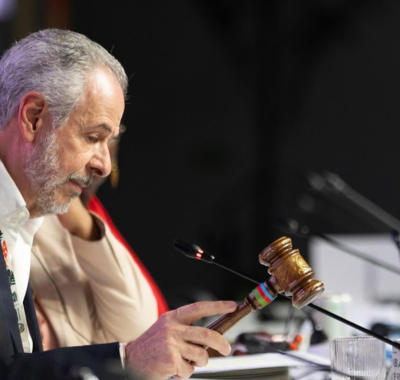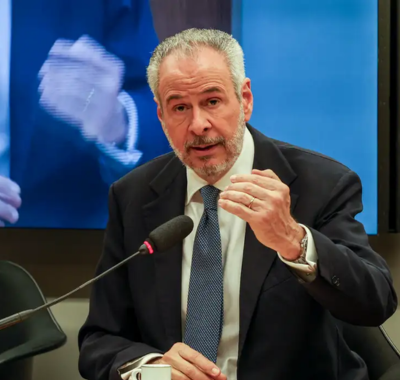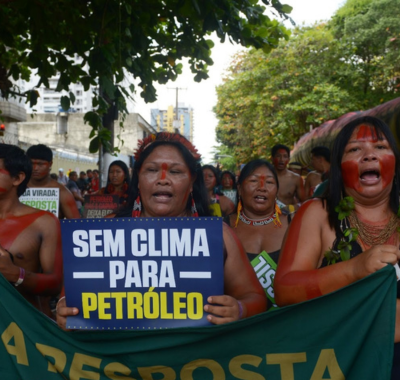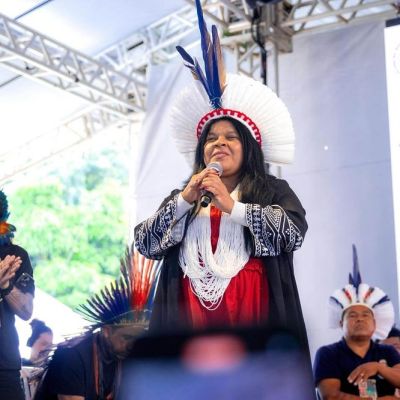The president of the National Foundation for Indigenous Peoples, Joenia Wapichana, says that the indigenous affairs agency is preparing demarcation processes, but final decisions depend on the Ministry of Justice and the Presidency. A survey conducted by Coiab lists 29 lands ready for official recognition.
By Daniel Camargos, from Repórter Brasil
BELÉM (PA) – The president of Brazil’s National Foundation for Indigenous Peoples (Funai), Joenia Wapihana, said that the agency is preparing new land demarcation processes but decisions on official recognition are up to the Ministry of Justice and the Presidency. She said she “expects positive announcements at the COP,” including progress in processes already underway with the federal government.
In a statement released before the UN Climate Summit, Funai advocated demarcation as a core strategy to face the climate crisis, stressing that indigenous lands account for less than 3% of deforestation in the country and are “natural barriers” against environmental destruction.
“We are working [on demarcation] at Funai, regardless of the COP, but that decision depends on the Ministry of Justice and the Presidency,” Joenia said in an interview with Repórter Brasil at the COP’s Blue Zone, in Belém, this Monday (10). “There is indeed expectation that announcements will be made, not only of demarcation but also about other positive measures,” she added.
The statement comes at a time when indigenous organizations are pushing for the government to take concrete actions during the COP30, held in the city of Belém. According to a survey conducted by Coiab (the Coordination of Indigenous Organizations in the Brazilian Amazon), 29 indigenous lands already meet all technical and legal conditions to be officially recognized, requiring only the President’s signature.
Since the beginning of the current administration in 2023, 16 indigenous lands have been officially recognized – exceeding the commitment to recognize 14 territories made during the 2022 governmental transition. Despite the progress over the previous decade, when only 11 lands were officially recognized, the pace is still considered insufficient by indigenous leaders, who point out that there are at least 107 territories ready to move forward, with 70 others awaiting the President’s signature and 37 awaiting declaration by the Ministry of Justice.
The procedure for demarcating indigenous lands includes three stages. First, Funai conducts studies that identify and delimit the territory. Then the Ministry of Justice publishes the declaratory ordinance. Finally, the Presidency issues a decree officially recognizing the indigenous territory.
For the president of Funai, the climate crisis is already having direct effects on Indigenous Peoples: “The Amazon is changing. A river that dries up affects life in the villages. The communities live close to large-scale projects that impact their territories,” she said.
“This COP is the time to show good practices that need to be funded, such as sustainable management, and that Indigenous Peoples deserve an effective commitment from the parties that are here. Not just speeches but actions implemented.” Funai president Joenia Wapichana.
Joenia acknowledges that demarcations will not solve all the problems but sees the global debate as an opportunity to give visibility to the issue: “We know that this will not solve everything, but it gives international visibility and shows that indigenous lands are crucial for carbon sequestration. It’s not just about conservation units: Indigenous Peoples keep most of the forest standing and need a perspective of investment on what they have been doing for thousands of years.”
Last week, Brazil’s National Council for Human Rights (CNDH) recommended that the government declare a state of “public calamity” given the escalating violence against Indigenous Peoples, citing murders, displacement, and invasion of territories. The agency also requested the suspension of the effects of the Time Frame Law and criticized the use of climate policies without prior consultation, such as some carbon credit projects.
At COP, Funai participates in the Green Zone with the Biodiversity Space, exhibiting products and handicrafts from different biomes, and with the Ecos da Terra Film Festival – both aimed at promoting indigenous knowledge and practices. More than 3,000 representatives of Indigenous Peoples from Brazil and other countries are attending the conference. That is expected to be the largest indigenous presence in the history of COPs. Many of them are camped in the COP Village at the UFPA Laboratory School.
—
This report was produced by Repórter Brasil, through the Collaborative Socio-environmental Coverage of COP 30. Read the original report at: https://reporterbrasil.org.br/2025/11/cop30-joenia-wapichana-demarcacoes-terras-indigenas-sequestro-carbono/

